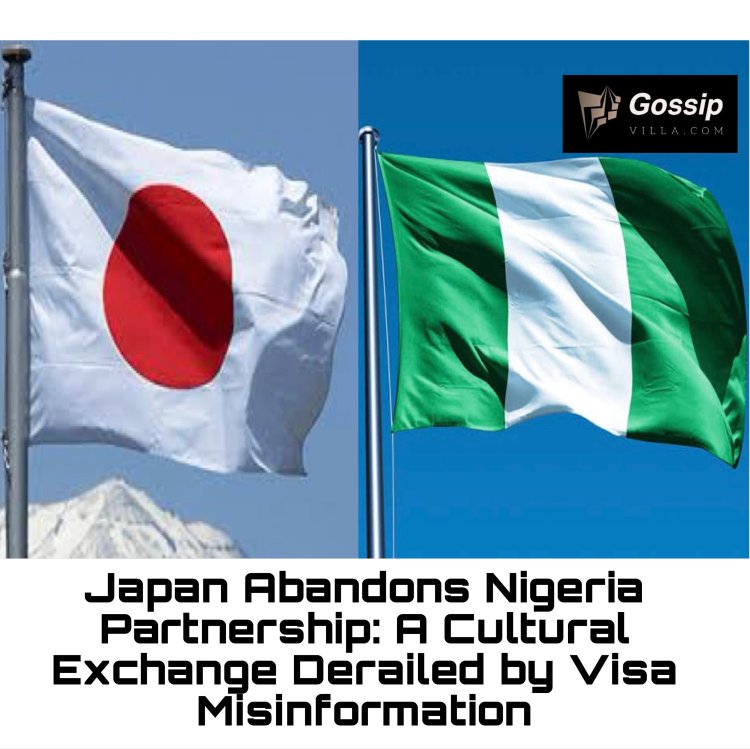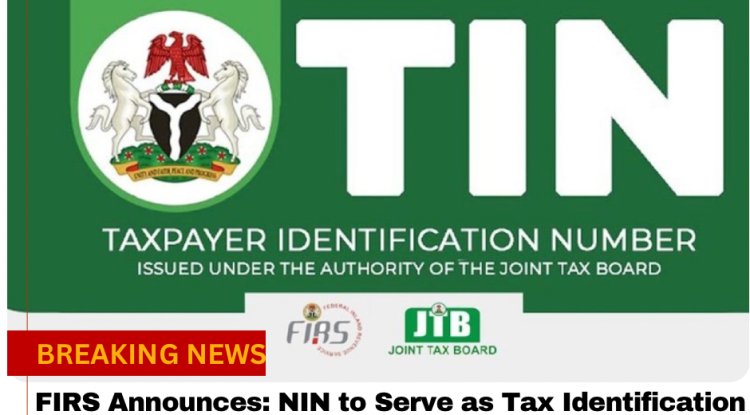Japan Abandons Nigeria Partnership: A Cultural Exchange Derailed by Visa Misinformation
Japan’s cancellation of the “Africa Hometown” initiative with Nigeria, announced on September 25, 2025, was triggered by visa misinformation from the Tinubu administration.

Japan Abandons Nigeria Partnership: A Cultural Exchange Derailed by Visa Misinformation
The Misinformation Crisis
In a stunning diplomatic setback, Japan has abruptly canceled a promising cultural exchange program with Nigeria and three other African nations, citing rampant misinformation that painted the initiative as a gateway for mass immigration. The decision, announced on September 25, 2025, by the Japan International Cooperation Agency (JICA), underscores the perils of unchecked false narratives in the digital age, particularly when amplified by government channels. What began as an effort to foster goodwill and economic ties at the 9th Tokyo International Conference on African Development (TICAD 9) in August has unraveled into a cautionary tale of miscommunication and public backlash.
The “Africa Hometown” initiative, unveiled during TICAD 9, aimed to pair select Japanese municipalities with communities from Nigeria, Tanzania, Ghana, and Mozambique. Under the plan, Kisarazu in Chiba Prefecture would symbolize a “hometown” for Nigerians, Nagai in Yamagata for Tanzanians, Sanjo in Niigata for Ghanaians, and Imabari in Ehime for Mozambicans.
The program was envisioned as a platform for youth exchanges, educational collaborations—such as baseball and softball programs—and mutual understanding to bolster Japan’s ties with Africa amid its growing global influence. JICA President Akihiko Tanaka had touted it as a “bridge for future generations,” emphasizing cultural immersion over relocation.
Enter the controversy: On August 25, 2025, Nigeria’s Ministry of Foreign Affairs, under President Bola Tinubu’s administration, issued a statement through Director of Information Abiodun Oladunjoye. It hailed the partnership as including a “special visa category” for skilled Nigerians to “relocate” to Kisarazu, framing it as a boon for addressing Japan’s labor shortages and promoting economic migration. This claim exploded across social media, with Nigerian outlets and influencers celebrating it as a “visa lottery jackpot.” Hashtags like #JapanWelcomesNaija trended, drawing thousands of inquiries and applications from hopeful migrants.
But the narrative quickly soured on the Japanese side. Local residents, bombarded by online rumors of an impending “African influx,” flooded city halls with complaints—up to hundreds per day in Kisarazu alone. Fears of cultural dilution, housing strains, and unchecked immigration fueled protests and petitions, with some media outlets sensationalizing it as a plot by Prime Minister Shigeru Ishiba’s government to import “millions of Africans and Kurds.” Japanese netizens expressed outrage on platforms like X (formerly Twitter), accusing authorities of secrecy and betrayal.
Japan’s Backlash and Response
JICA moved swiftly to debunk the falsehoods. In a series of press releases on August 25, 27, and 29, the agency clarified that the program involved no visas, immigration reforms, or relocation schemes—only symbolic partnerships for exchanges like student visits and cultural events. Japan’s Ministry of Foreign Affairs echoed this on August 25, with spokesman Yoshimasa Hayashi stating unequivocally to AFP, “There are no plans to accept migrants or issue special visas.” Kisarazu Mayor Yoshikuni Watanabe reinforced the point, noting the focus was on “youth education through sports,” not settlement.
Despite these clarifications, the damage was irreparable. The misinformation, traced back to the Nigerian government’s overzealous spin, had ignited a xenophobic firestorm that JICA could no longer contain.

On September 25, Tanaka announced the program’s full withdrawal, lamenting, “Reactions spread based on misunderstandings and confusion. The Africa Hometown initiative will be withdrawn.” The cancellation extends to all four countries, sparing none from the fallout.
This episode raises thorny questions about diplomatic messaging in an era of instant information. For Nigeria, under Tinubu’s Renewed Hope agenda, the gaffe highlights a pattern of optimistic—but sometimes exaggerated—foreign policy announcements, from economic pacts to migration deals. Critics argue it eroded trust, portraying Nigeria as unreliable and opportunistic. On the flip side, Japan’s retreat has drawn accusations of fragility in its multicultural ambitions, especially as it grapples with a shrinking population and labor gaps. Asahi Shimbun opined that while the cancellation quelled protests, it wasn’t a “win for xenophobes” but a missed opportunity for genuine ties.
Broader implications loom for Africa-Japan relations. TICAD, a cornerstone of Tokyo’s engagement with the continent since 1993, has pumped billions into infrastructure and development. Scrapping this initiative could chill future collaborations, signaling to African leaders that bold partnerships carry reputational risks. For Nigerians, the dashed dreams serve as a stark reminder: Verify before you celebrate. As global migration debates intensify, incidents like this underscore the need for precise communication to bridge, not burn, international bridges.
In the end, what was meant to symbolize unity has become a symbol of discord. Japan and Nigeria must now rebuild from the ashes of exaggeration, perhaps through quieter, more transparent channels. Only then can the true spirit of exchange prevail.
News sources:
Dont forget to like and share for more.
What's Your Reaction?




















